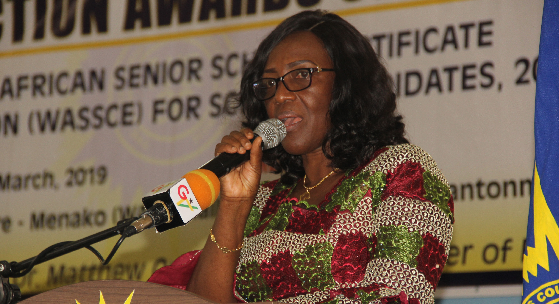
Curbing examination malpractice: Rogue websites hot
The West African Examinations Council (WAEC) is partnering the security agencies to crack down on rogue websites operating in the country.
The examination body has submitted details of more than 21 such websites to the security agencies for tracking to bring those behind them to book.
Also included in the report to the security agencies is the harm those websites are causing to the future generation and the nation as a whole.
The Head of the National Office of WAEC, Mrs. Wendy Enyonam Addy-Lamptey, told the Daily Graphic that the websites became active anytime the council's examinations were about to be written.
Most of the websites, she said, had over 60,000 followers, majority of them students, for which reason “it is easier for them to lure the students with their fake question papers”.
Names of rogue websites
Mrs. Addy-Lamptey recalled that this year, shortly after President Nana Addo Dankwa Akufo-Addo had announced the reopening of schools for final-year JHS and SHS students to prepare for their BECE and WASSCE, respectively, as many as 21 of such websites sprang up, with interesting and attractive names.
She mentioned some of the names as: “WAEC Exams Room”, “WAEC - Seekers Exams Leaks”, “WAEC Pass Examination”, “WASSCE Results Upgrade”, “WAEC for 2020”, “West Africa Exams Links” and “WAEC Secret Room”.
Others are “WAEC Spark WAEC”, “Ghana Education News”, “WAEC Update,” “WAEC 2020”, “WAEC Authentic Hub”, “WAEC Ghana”, “WAEC Union”, etc.
![]()
Flashback: Some students writing a WASSCE paper
What they do
Mrs. Addy-Lamptey said the activities of those websites included the publication of fake examination papers, fake answers to supposed examination questions, fake examination timetables, deceit of unsuspecting candidates, and the public to upgrade their examination results, among others.
She said some of the website operators used Facebook to advertise their websites, set up WhatsApp platforms and set up links with other sites, while others introduced themselves as either typists at WAEC or having direct links with the WAEC strong room.
To make their activities seem authentic, she said, some of them had links with teachers who were invigilators and supervisors, “and sadly enough, those examination officials take snap shots of the papers after distribution and send them to the website operators, who upload them onto their websites”.
Vital information
Mrs. Addy-Lamptey said WAEC had been able to obtain the contact numbers of the operators and some other details that should make it easier for the security agencies to track them down.
She said a crackdown and subsequent blockade of such websites would minimise the issue of examination malpractice and also save desperate candidates and their parents who ended up parting with huge sums of money for supposedly leaked papers, which often ended up being fake.
WhatsApp platforms
She expressed the belief that if those websites were blocked, the operators would not be able to get the students to extort money from them, in the name of providing them with authentic examination papers.
Mrs. Addy-Lamptey revealed that some of those operators had WhatsApp platforms where most of the students were linked up to and, therefore, advised those students to exit those platforms because when the operators were apprehended, all those on the platforms would be in trouble.
She advised people to exit platforms when they were not sure of the intentions of the administrators, since such platforms could be used for criminal activities.
Threat to credible examinations
She described those websites and their activities as the greatest threat to the credibility of the certificates issued by WAEC and, therefore, advised examination candidates to “desist from dealing with such websites and feel free to contact WAEC offices or the WAEC website: www.waecgh.org, for any assistance”.
She also asked for the collective support of parents, invigilators, supervisors, and all those who had a role to play in the writing of examinations to help ensure that “we have credible examinations”.
Advice to candidates
Mrs. Addy-Lamptey noted that candidates who prepared well ahead of examinations did not worry themselves looking for illicit assistance, locally known as ‘apo’, and, therefore, advised candidates to always prepare.
She reminded the candidates that even if they managed to engage in examination malpractice, the council had a way of determining whether a candidate had cheated or not.
She expressed gratitude to the Ministry of Education, the Ghana Education Service and particularly National Security for the enormous support rendered to the council.
